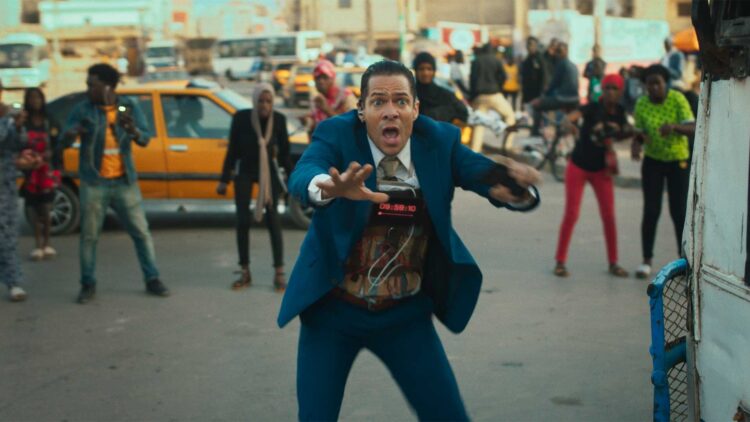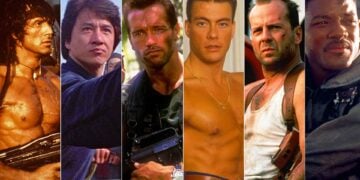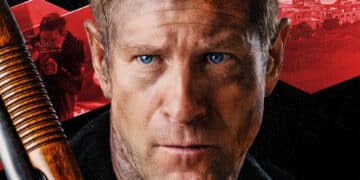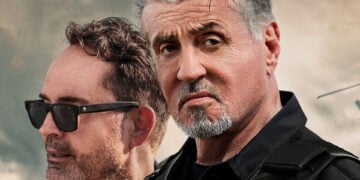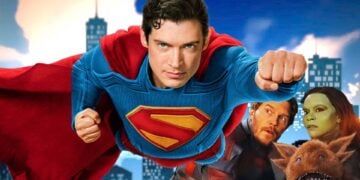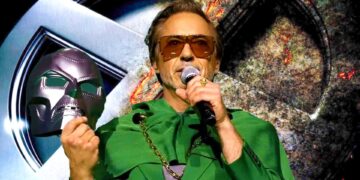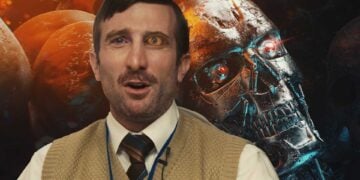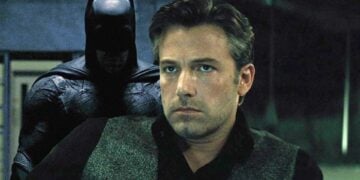Jean Luc Herbulot’s Zero opens with a poetic metaphor about how everything starts from nothing. Instantly, it forces you to pay attention, especially since the next scene introduces the character known as One (Hus Miller), who wakes up with a time bomb strapped to him. A little while after this, a second character, Two (Cam McHarg), comes into play – also with a time bomb strapped to him. The pair get brought together, led only by a mysterious man’s voice (Willem Dafoe) issuing them missions throughout Senegal via the phone.
Perhaps it’s the fault of the trailer, or even my own preconceived expectations, to think that this would be a riff on Speed, or even Saw, believing Zero would leave breadcrumbs throughout the story to a big reveal of how these two American men are somehow connected or chosen for their fate here. In the end, though, I’m left with fragments of sociopolitical commentary about the Western world’s view of Africa, as well as a messy and incoherent story that never quite meshes with the thematic intention.
What even is this movie?
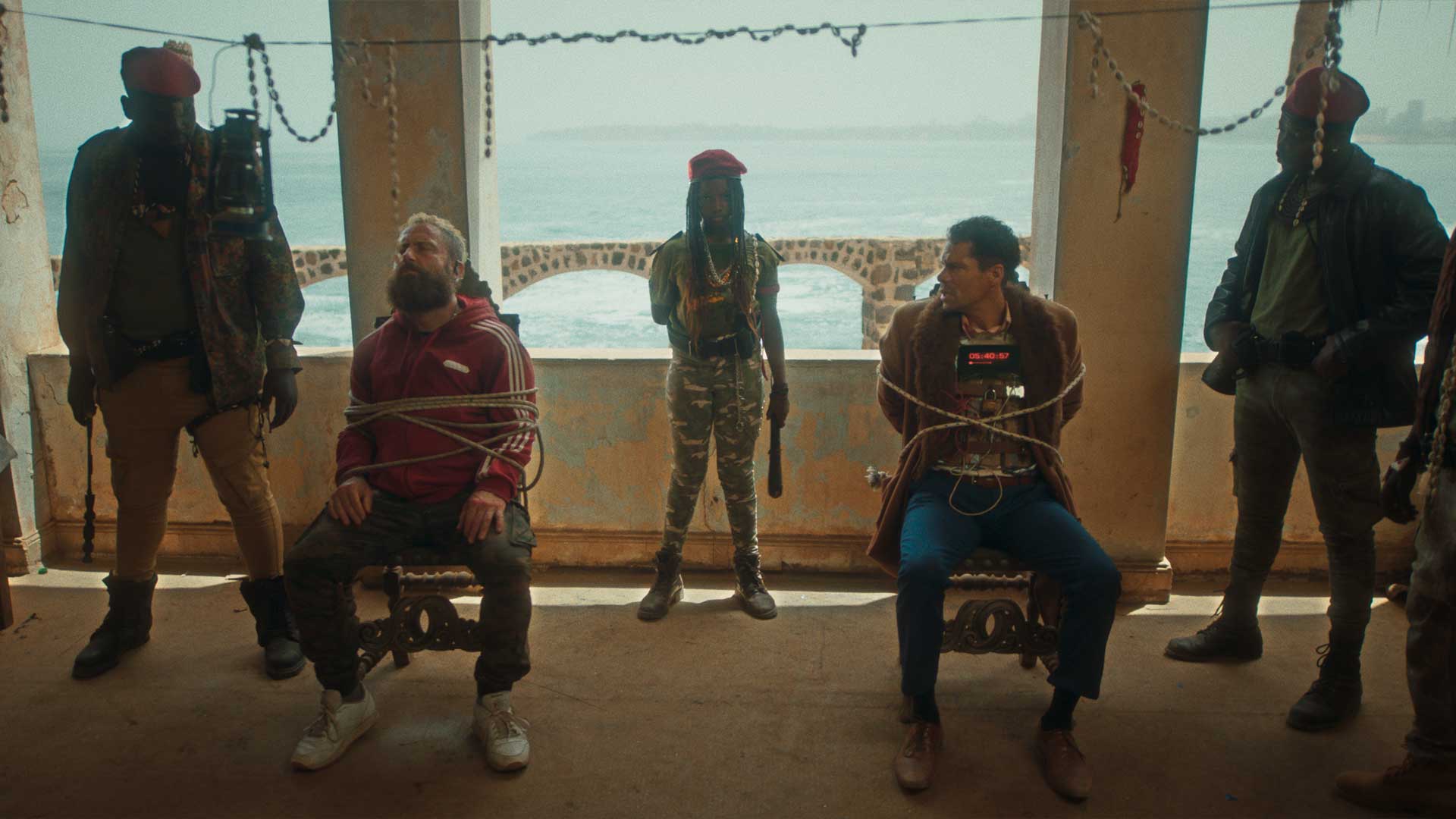
The main issue with Zero is the tonal inconsistency. The film doesn’t start off funny – it’s a grave affair, as these guys have bombs strapped to them, and everyone around them fears what may happen if they hang around them for too long. Yet, Zero glides between the gravity of the situation and the over-the-top, quirky humor and colorful characters of something like David Leitch’s Bullet Train. It almost begs you to not take it seriously, which is counterproductive to the actual message of the movie. While humor has its place in films with high tension – and can be effective when utilized correctly – it’s strange to see a goat turn into a main character for several minutes or people flip through the air in slow motion after an explosion, because, well, reasons.
It also doesn’t help that Jean Luc Herbulot and co-writer Hus Miller apply a stream of consciousness to the story. A lot of this comes across as nonsensical and off the cuff. Even in the moment. Characters pop in and out of the narrative at will, with many leaving the viewer wondering what the point of their appearances were, and events seemingly happen against the grain of the story. Constantly, I found myself rewinding the film to see if I maybe missed something important beforehand, but nope, it’s just the way the film is made. It’s intentionally haphazard.
Zero has zero stakes

Due to these filmmaking choices, Zero never feels dangerous. This is a story about people having time bombs strapped to them, but the situations and missions don’t captivate the audience. This should be a race against time, with every minute turning up the anxiety level of the viewer and having the characters sweating for survival. Instead, the characters don’t come across as desperate or as if the end is nigh – heck, I’d go as far as to argue I have never seen two more relaxed protagonists with bombs attached to them in a movie before.
Ironically, the best way to fix Zero would be to go back to the start – to nothing – or the core concept of the film at the very least. Because somewhere, along the way, this story morphed into a ten-headed monster, with each head looking in a different direction, and no one knows who to follow anymore.
RELATED: Gunslingers Movie Review – Stephen Dorff and Nicolas Cage’s Western Shoots Blanks for the Most Part
The Review
Zero
Zero is completely nonsensical.
Review Breakdown
-
Verdict


